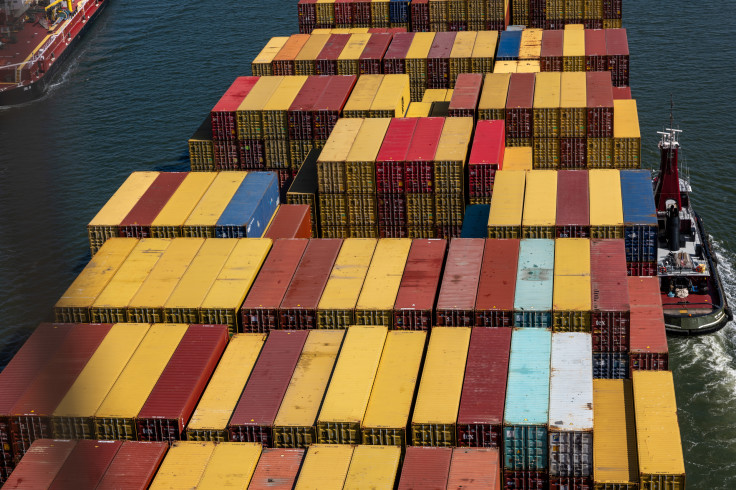
With a potential strike by thousands of dockworkers looming, some Americans are filling their grocery carts with essentials, concerned about disruptions to the nation's supply chain. The strike, which could begin as soon as midnight, threatens to close major ports along the East and Gulf coasts, impacting the flow of goods that make up more than half of all U.S. containerized imports and exports.
Social media posts show some shoppers filling their carts, wary of a repeat of past supply chain disruptions that left shelves empty. One user sarcastically captioned a photo of a grocery cart full of bottled water and non-perishable goods, "Me trusting our politicians to handle the possible port strike appropriately."
Me trusting our politicians to handle the possible port strike appropriately: pic.twitter.com/r7udMBW092
— No Harm (@nvrmeaninnoharm) September 28, 2024
Another user posted a photo of a car packed with groceries, captioned, "Get ready y'all it's the calm before the storm."
There’s gonna be a port strike? pic.twitter.com/9PVmCYysMO
— Washingtons ghost (@hartgoat) September 29, 2024
South Carolina resident Karen Barnes urged her Facebook friends to stock up on essentials, warning that some stores in her area were already running low on supplies. "Y'all need to be stocking up on food today! Groceries! The last strike lasted 44 days! That means Walmart shelves will go and stay empty! Mix this port strike with hurricane relief = disaster! There are stores already in Columbia just two hours from us with empty shelves!"
Why are port workers striking?
The labor dispute centers on negotiations between the International Longshoremen's Association (ILA), which represents around 85,000 dockworkers, and the United States Maritime Alliance (USMX), representing terminal operators and ocean carriers. The ILA is pushing for wage increases and stronger job protections, including a complete ban on automation at port terminals, which the union argues could eliminate jobs.
USMX, on the other hand, has offered what it describes as an "industry-leading" pay hike, but the two sides remain far apart.
"Throughout the pandemic, Longshore workers never took a day off," said ILA Executive Vice President Dennis A. Daggett in a Sept. 20 press conference. "The very corporations that profited off our hard work refuse to share those profits with the workers who make them possible."
How much are port workers paid?
CBS News reports that union workers at ports in the East Coast and Gulf Coast earn a base wage of $39 an hour after six years on the job. That is significantly less than their unionized West Coast peers, who make $54.85 an hour — a rate that will increase to $60.85 in 2027, excluding overtime and benefits.
Assuming a 40-hour workweek, West Coast port workers are making more than $116,000 a year, versus $81,000 for their counterparts in the East. The ILA's initial demands included a 77% wage hike over a six-year contract, with the labor group arguing that the increased pay would make up for the surge in U.S. inflation in recent years.
How could a port strike affect the U.S.?
If the strike goes forward, it would be the first coast-wide ILA strike since 1977, affecting 14 major ports from Massachusetts to Texas, which handle over 68% of U.S. containerized imports. Economists predict the strike could cost the U.S. economy between $4.5 billion and $7.5 billion per week, potentially worsening inflation and causing widespread shortages of goods, including automobiles, electronics, and perishable foods.
While some experts believe the strike could be short-lived, others warn that prolonged disruptions could lead to significant economic fallout, especially for industries dependent on the ports for raw materials and goods.
© 2025 Latin Times. All rights reserved. Do not reproduce without permission.






